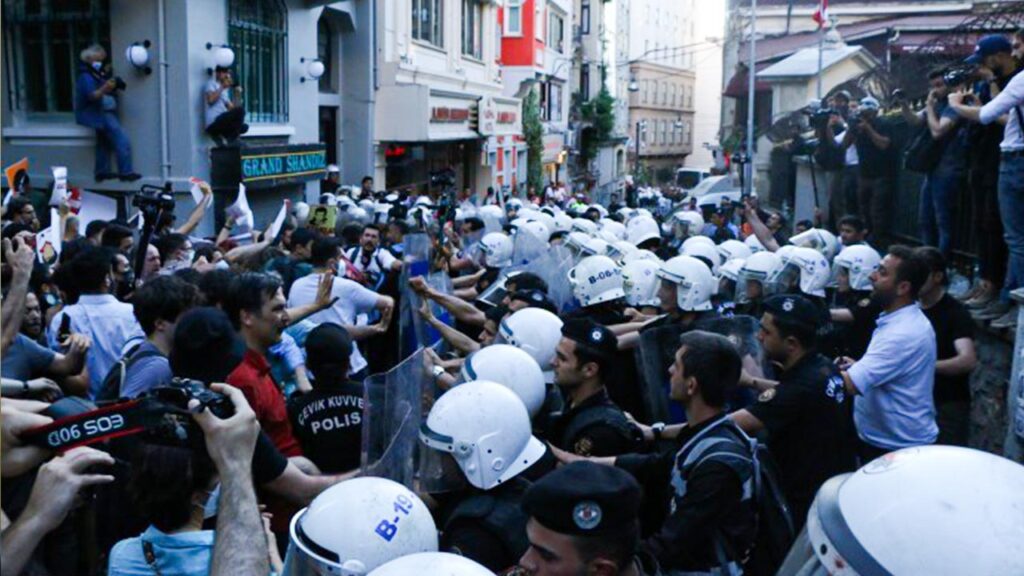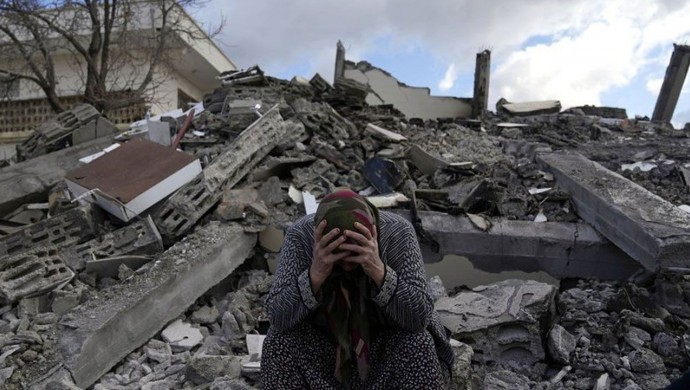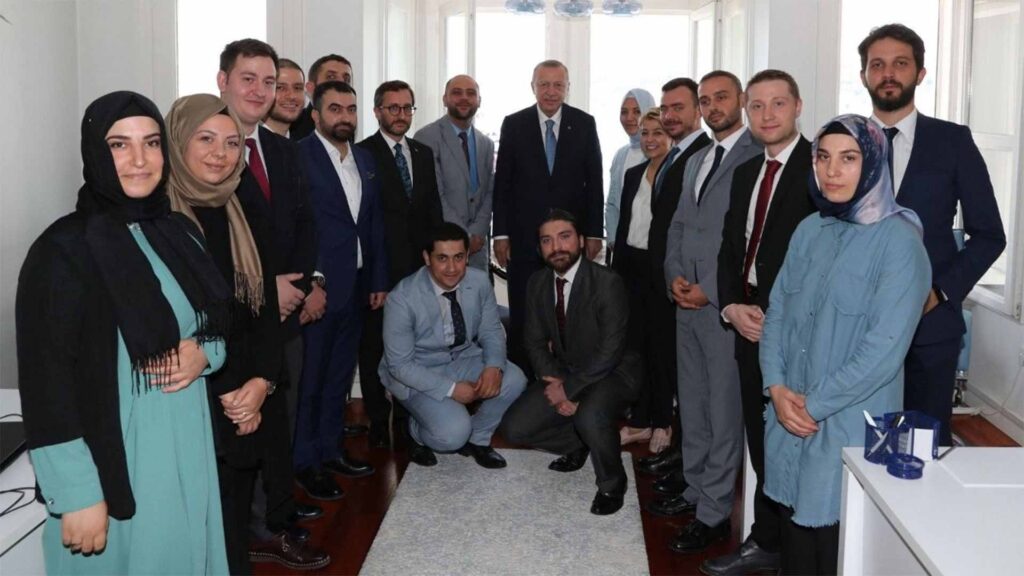In the last decade, Turkish mass media has narrowed into a pro-government one-sided discourse as a result of President Recep Tayyip Erdoğan’s authoritarian politics, which have further broadened the key role of social media in political interactions both for the opposition parties and figures and for the masses.
Facing this powerful role through the bitter experience of the Gezi Park protests in the summer of 2013, Erdoğan’s government has been managing, with enthusiastic support from its ultranationalist ally, the Nationalist Movement Party (MHP), to extend its control of social media too, as far as it allows.

Around 200,000 lawsuits were filed for ‘insulting the president’, mostly on social platforms. In addition, blocking and censoring web pages that have ‘inappropriate’ content and media blackouts after incidents that may cause ‘panic in society’ have been the main methods of social media restrictions, which were further expanded with the Disinformation Law enacted in 2022.
The most tragic outcome of these restrictions came after the massive earthquakes that shook southeast Turkey on 6 February, when the government decided to block most access to Twitter in the early vital hours following the deadly tremors.

Until the cut-off that lasted nearly ten hours, thousands of survivors in the disaster area, including those stuck under the rubble, had been using Twitter as the primary source of communication and calls for help, in the absence of state officials and search and rescue efforts.
However, the AKP’s social media operations are not limited only to bans and constraints. The existence of government-sponsored internet propaganda which is claimed to be directly affiliated with Fahrettin Altun, head of media and communications in the Turkish presidency, has long been known to the public, although it was never officially acknowledged.
Apart from defending and reinforcing the discourses of President Erdoğan and his AKP, the main mission of this group is to attack and discredit sources of anti-government rhetoric and opinions in social media, as well as to cause disinformation in order to agitate the opposition.

The group, known as ‘aktrolls’ in the public, is allegedly funded by the Directorate of Communications and managed by a team headed by Altun. This team, which functions as the propaganda apparatus of the AKP and is known as the Pelican group, made headlines in 2016 with the famous Pelican Files, during the period that resulted in the resignation of then-president Ahmet Davutoğlu.
Under Erdoğan’s auspices, this team, which carries out its activities under the umbrella of a pro-AKP company called the Bosphorus Center for Global Affairs, includes Erdoğan’s son-in-law Berat Albayrak, his brother Serhat Albayrak, Turkish journalist Hilal Kaplan and her husband Süheyb Öğüt.
See also: AKP’s social media warfare-1: Anti-opposition conspiracies invade Twitter ahead of elections










